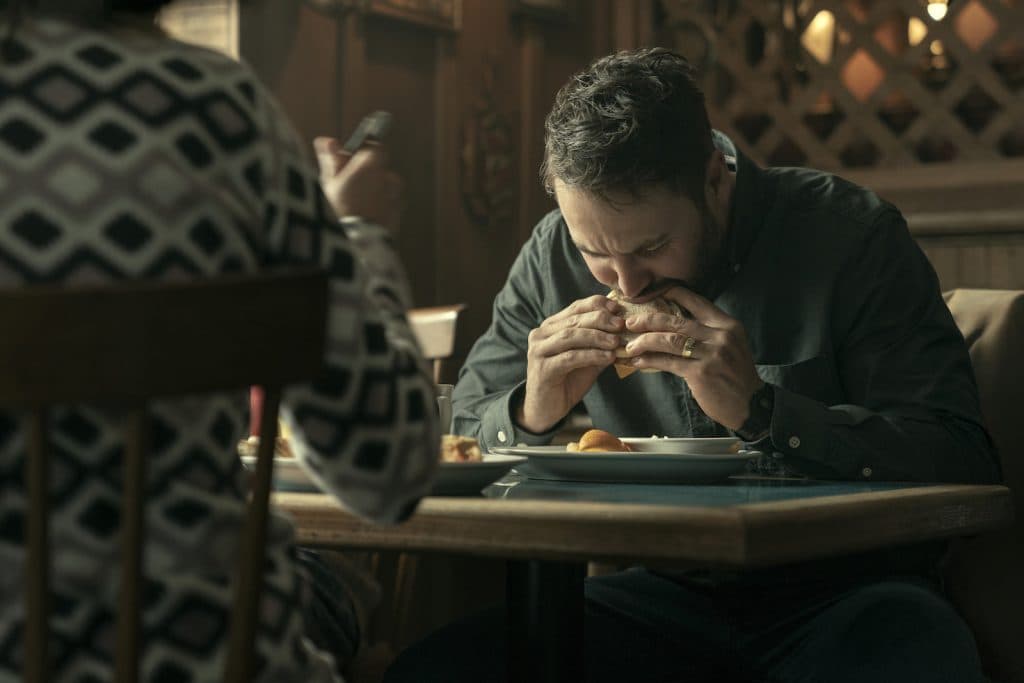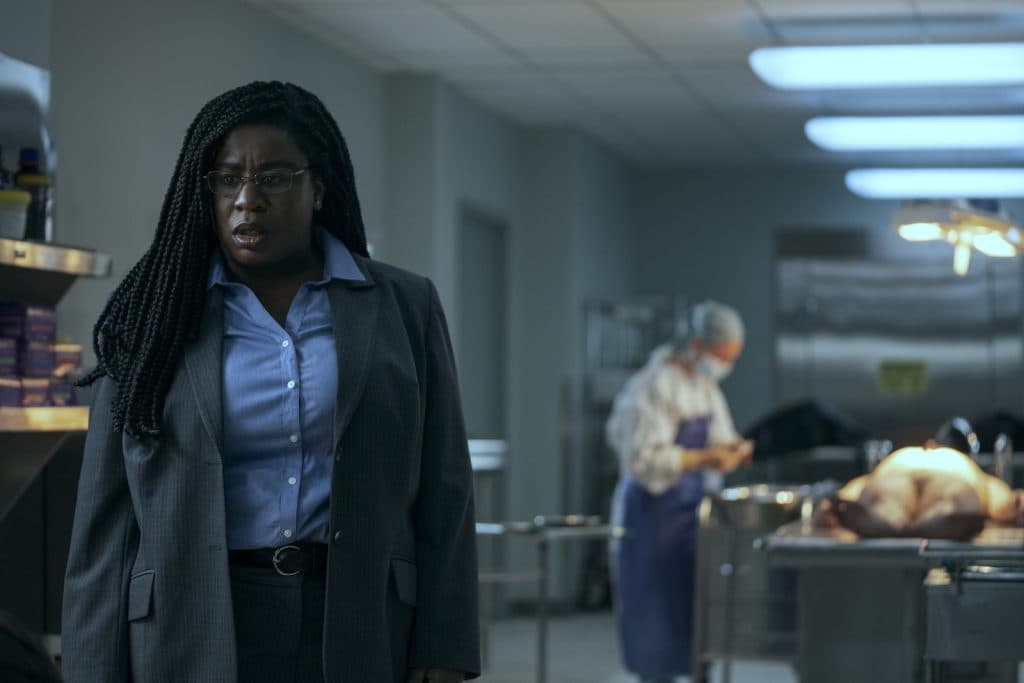Painkiller: What happened to Glen?
 Netflix
NetflixPainkiller continues to draw in Netflix viewers with its poignant story about the opioid epidemic in the US, examining the impact it had on everyday Americans through character Glen Kryger. Here’s what happened to Glen at the end of the series, plus if he’s based on a real person.
Not only does Painkiller focus on the opioid crisis, but it also examines the real-life villains who were pulling the strings for their personal financial gain. Notably, the six-part show tells the story of the dastardly Dr Richard Sackler, one of numerous Sacklers who ran Purdue Pharma, and how he drove the widespread sale of the firm’s “miracle drug” – a highly potent, dangerous, and addictive opioid named OxyContin.
While we already saw this tale play out in Hulu’s 2021 miniseries Dopesick, Netflix has offered its own take on the shocking rise and fall of Purdue, and how communities across the US have been destroyed in its wake.
One of the most heartbreaking arcs in Painkiller is that of Glen Kryger, played by Taylor Kitsch, a man whose life is upended by a drug that was meant to set him free. So, what happened to Glen at the end of Painkiller? Warning: Some may find this content distressing, and spoilers for Painkiller ahead!
Painkiller: What happened to Glen?
Sadly, Glen Kryger dies in the sixth and final episode of Painkiller, accidentally overdosing on OxyContin.
At the start of the Netflix series, Glen is a happily married man, running a car mechanic business with his wife Lily Kryger (Carolina Bartczak). Together, they have a young daughter and Glen helps to raise Lily’s teenage son, Tyler (Jack Mulhern).
When Tyler messes around at the workplace, Glen has an accidental fall, and for a while he lives a life of pain and mobility issues. But this all changes when his doctor is sold the brand new “revolutionary” painkiller OxyContin.
 Netflix
NetflixPurdue Pharma embarked on an aggressive and widespread marketing campaign, led by Richard Sackler, for the strong and highly addictive opioid in the late 90s, claiming that its special coating meant the drug had an extended release and was therefore only addictive in 1% of cases.
But this couldn’t have been further from the truth. Patients quickly built tolerances to the drug or learned how to bypass the coating, and this, coupled with the fact that it was being prescribed to people with all kinds of pain issues, is what many believe accelerated the ongoing opioid crisis in the US.
When Glen is prescribed OxyContin for his back, it works – at least for a short while. But soon enough he starts needing it more frequently to deal with his back pain. Rather than prescribing smaller doses at shorter intervals, his doctor instructs him to do what Purdue’s sales reps recommend: take higher doses every 12 hours.
Glen starts taking dangerous amounts of OxyContin – said to be the “chemical cousin” to heroin – and shows signs of withdrawal when he doesn’t have access to his pills.
At one shocking moment in the series, while out for a meal with his family, he’s so dosed up that he accidentally bites into his finger, not realizing he’s got blood dripping down his arms and into his food.
 Netflix
NetflixWhen he vows to kick the pills for good, he finds it hard to stay away. And therein lies the problem with opioids: they activate powerful reward centers in your brain, effectively changing the brain’s chemistry. So even when an addict is able to get through the physical withdrawals, the psychological effects linger.
Glen goes through a roller coaster of emotions, as does his family, as he flips between sobriety and relapse. In Episode 6, it seems like he’s determined to kick OxyContin for good. After getting through withdrawal – completely alone in his garage – he enrolls in a Methadone program and picks up his one month sober chip.
But while staying in a motel and trying to build back trust with his family, he hears loud music blasting from the room next door. After knocking to no answer, he opens the door, only to find two unconscious people with a pile of OxyContin pills on the side of their bed.
 Netflix
NetflixSadly, the addiction is so powerful that Glen succumbs to the cravings and ends up taking the stash. After a phone call to his wife in which she clearly notices something is up, he continues snorting lines of the drug before going into his truck.
As images of the past few months flash on screen, the sound of his heartbeat slowing down plays in the background. Eventually, Glen’s heart stops. By the time he’s found by a couple of passersby, it’s too late – just like the thousands of people who were sold a lie by Purdue, Glen dies from an OxyContin overdose.
Painkiller: Is Glen a real person?
No, Glen Kryger isn’t based on one specific individual, but rather his character was created to represent the estimated 300,000 Americans who have died over the past two decades from overdosing on prescription opioids such as OxyContin.
As explained by Netflix, although Glen is a fictional character, he’s the show’s main face of the devastation OxyContin has caused to everyday people in the US.
Speaking about why he felt the weight of portraying Glen, actor Taylor Kitsch said: “Man, it’s pretty close to me, this thing. Unfortunately, I think we’re all one degree away from someone who’s an addict.”
“These stories don’t get made enough,” he added. “So when they do, we gotta do it f*cking right and take a swing.”
 Netflix
NetflixSimilarly, Edie Flowers – the no-nonsense lawyer working for the US attorney’s office in Roanoke, Virginia, portrayed by Uzo Aduba – is a made-up character. But she represents the numerous investigators who worked tirelessly to bring Richard Sackler and his house of cards down. You can read more about Edie Flowers here.
Painkiller is available to stream on Netflix now. You can check out further coverage below:



